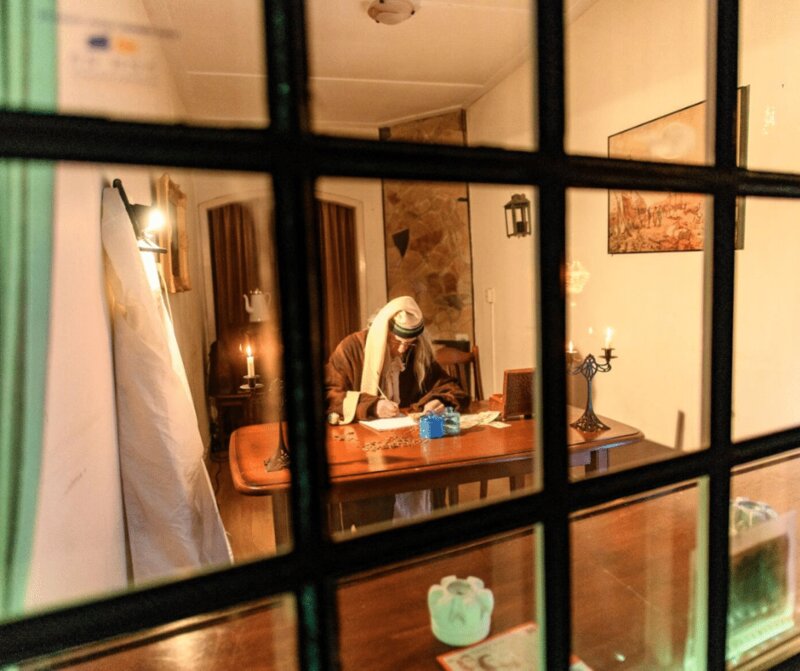
December 07, 2020
College Choice Counseling: 5 things to appreciate about remote learning
By Barbara Connolly For MediaNews Group – December 7, 2020

This holiday season, students can follow Scrooge’s lead and ditch the “bah humbug”attitude regarding changes COVID-19 has brought to education, and instead focus on the positive impacts. (iStock)
December is a time when stories about the holidays dominate our screens, but this year, because of COVID-19, none will resonate more than the story of Scrooge.
The classic tale is depicted differently in film and television, but in every version Scrooge is visited by three ghosts.
The first ghost takes Scrooge on a journey to his carefree past, which this year may remind us of when we were not concerned about a virus. The second ghost allows Scrooge a glimpse of families celebrating the holiday, but only from a distance, echoing our current reality of social distancing–even at family gatherings. The third ghost predicts a grim future for Scrooge if he does not change his ways, not unlike health officials warning us of trouble ahead if we do not wear masks. The three ghosts frighten Scrooge into changing his outlook; instead of saying “bah humbug,” Scrooge begins to appreciate how the world can be if he tries to improve things.
Students and educators at all levels of our education system have been uniquely challenged this year by COVID-19. We may have thought “bah humbug” when schools announced remote classes. Now, as many schools continue remote learning due to a surge in COVID-19 cases, it is difficult for us to take because we do not know when the crisis will end; we are still in the middle of the story.
We might be able to better appreciate what we have, and anticipate good things to come if, like Scrooge, we change our mindset. Here are five things to appreciate about how our schools are adapting as we move from the middle of the story to the next chapter — when we will have curbed the spread of the virus.
Investment in strong public schools
Since COVID-19 forced schools to pivot to remote learning, parents and students have a newfound appreciation for the importance of public schools. As schools closed, parents became aware of how much they had anchored their own daily lives around our schools. Parents and communities recognized more than ever that schools provide:
• Caretaking by providing essential services, food, and safe environments
• Teacher skills that parents cannot duplicate
• Economic stability by allowing parents to go to work
COVID-19 has made teachers and school administrators heroes! It is reasonable to hope that government will leverage this overwhelming public support for schools to invest more in them in the future.
Emerging parent empowerment
The coronavirus pandemic has put parents at the center of their children’s education. As schools closed, teachers partnered with parents to provide remote instruction to students. To achieve student success, schools are supporting parents using technologies as simple as mobile phones to communicate by text. In some cities, hotlines have been created to help parents with resources to assist their children. We can expect that parents working as powerful allies with teachers will be a lasting outcome of the pandemic.
Accelerating technology innovation
When schools first canceled in-person classes due to the pandemic, schools implemented powerful technologies like Zoom in a cost-effective and useful manner. In the past, innovation in technology in schools was sometimes viewed by educators as costly and distracting. But since the pandemic, schools have used technology to deliver instructions in core subjects.
Also, recognizing the urgent need for good internet, including in economically stressed and remote areas, schools and communities have partnered to make high-quality internet more widely available. This will certainly be an upgrade that will outlast the COVID-19 crisis.
Greater Access
From elementary school to college, because school is online due to COVID-19, students with physical disabilities have greater access to classes and team projects than ever before. Also, because colleges have moved student recruitment online, high school students can easily visit colleges, whereas before the pandemic, costs and logistics often made visits impossible.
In addition, online courses, created in response to the pandemic, have the potential to make colleges more racially and economically diverse because students from different backgrounds can affordably attend schools located outside of their immediate regions.
More outside-of-school learning
Because class schedules in the midst of the coronavirus pandemic are more flexible, there is increased opportunity for learning outside of the classroom. Students can take on a number of after-school enrichment activities like:
• Music lessons
• Independent research
• Work with tutors
• Classes provided by community organizations
• Internships
• Paid work
So even as school buildings are closing to the prevent the spread of the virus, the lesson of the classic novella, A Christmas Carol — that we can make our world better with a positive, generous outlook — is worth taking to heart whenever we want to say “bah humbug” about the state of our schools.
Some things have already gotten better, and we are only in the middle of the story.
Barbara Connolly, JD, is founder and director of Birmingham-based College Choice Counseling, and a certified educational planner. She can be reached at barbara@collegecc.com.
Share This Story, Choose Your Platform!
Marx Layne is your competitive advantage.
Your reputation and success are our only concerns.

